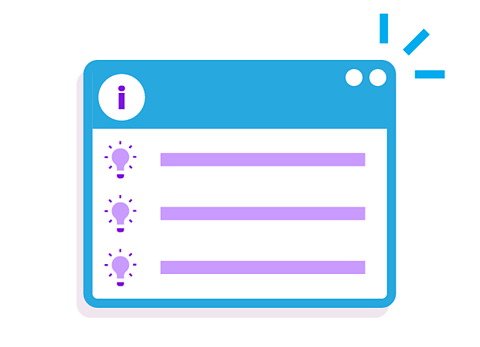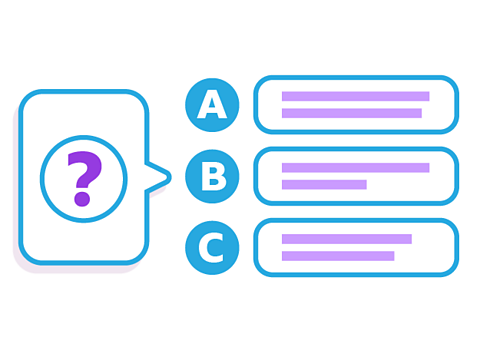Key points about the present subjunctive in Spanish

The present subjunctive tense is used to express doubt, possibility, requests, and after verbs of emotion.
It is also used after certain phrases like cuando and para que.
When to use the present subjunctive in Spanish
The present subjunctive is a special form of a verb which is used in certain situations:
- to express doubt, uncertainty and possibility
- after verbs of emotion
- for wishes, advice and requests such as querer que and pedir que
- after para que when it means 'in order to'
- after the time phrase cuando
Expressing doubt, uncertainty and possibility
For example:
No creo que Ana venga a la fiesta. - I donāt think Ana will come to the party.
QuizƔs Hugo vaya al cine. - Perhaps Hugo will go to the cinema.
After verbs of emotion
For example:
Me alegro de que mi abuela nos visite. - Iām glad that my grandma is visiting.
For wishes, advice and requests such as 'querer que' and 'pedir que'
For example:
Mis padres quieren que vaya a la universidad. - My parents want me to go to university.
After 'para que' when it means in order to
For example:
Estudio mucho para que tenga buenas notas. - I study a lot so that I get good marks.
After the time phrase 'cuando' when you are talking about the future
For example:
Cuando venga tu hermana. - When your sister comes home.
Forming the present subjunctive
The table shows five different irregularSomething that does not follow the usual or āregularā pattern. verbs in the present subjunctive in the singular I, you (informal) and he/she and you (formal) forms.
There are no patterns for the different stemThe part of the verb that is left once the infinitive ending (ar/er/ir) has been taken off. It can also be called a radical., so you have to learn them, but the endings do follow a pattern:
a for I and he/she and you (formal)
as for you (informal)
| Sorry, something went wrongCheck your connection, refresh the page and try again. - to be | Sorry, something went wrongCheck your connection, refresh the page and try again. - to make/do | Sorry, something went wrongCheck your connection, refresh the page and try again. - to go | Sorry, something went wrongCheck your connection, refresh the page and try again. - to have | Sorry, something went wrongCheck your connection, refresh the page and try again. - to come | |
|---|---|---|---|---|---|
| I - yo | Sorry, something went wrongCheck your connection, refresh the page and try again. | Sorry, something went wrongCheck your connection, refresh the page and try again. | Sorry, something went wrongCheck your connection, refresh the page and try again. | Sorry, something went wrongCheck your connection, refresh the page and try again. | Sorry, something went wrongCheck your connection, refresh the page and try again. |
| You (informal) - ³ŁĆŗ | Sorry, something went wrongCheck your connection, refresh the page and try again. | Sorry, something went wrongCheck your connection, refresh the page and try again. | Sorry, something went wrongCheck your connection, refresh the page and try again. | Sorry, something went wrongCheck your connection, refresh the page and try again. | Sorry, something went wrongCheck your connection, refresh the page and try again. |
| He/she - Ć©±ō/±š±ō±ō²¹ | Sorry, something went wrongCheck your connection, refresh the page and try again. | Sorry, something went wrongCheck your connection, refresh the page and try again. | Sorry, something went wrongCheck your connection, refresh the page and try again. | Sorry, something went wrongCheck your connection, refresh the page and try again. | Sorry, something went wrongCheck your connection, refresh the page and try again. |
| You (formal) - usted | Sorry, something went wrongCheck your connection, refresh the page and try again. | Sorry, something went wrongCheck your connection, refresh the page and try again. | Sorry, something went wrongCheck your connection, refresh the page and try again. | Sorry, something went wrongCheck your connection, refresh the page and try again. | Sorry, something went wrongCheck your connection, refresh the page and try again. |
The present subjunctive in Spanish - Mini quiz

What is the subjunctive verb in this sentence?
No pienso que David ____ a la fiesta.
I donāt think David will come to the party.
No pienso que David venga a la fiesta.
Quiz - The present subjunctive in Spanish
Practise what you've learned about the present subjunctive in Spanish with this quiz.
Now you have learned about the present subjunctive in Spanish why not explore ongoing actions in the present tense?